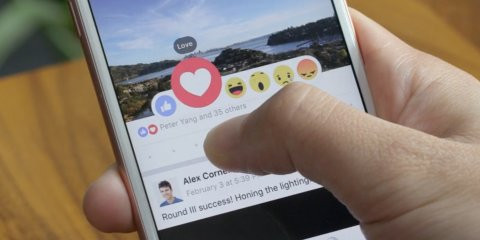The creator of Facebook's 'Like' button no longer 'likes' it
Former Facebook programmer Justin Rosenstein, the “father” of the Like button, said he regrets that the Like button was a waste of time.
 |
| Icons that accompany the Like button were added later. Photo: Facebook |
According to Fox News (USA), this programmer once shared in one of his articles: "Designing software to help use time effectively instead of simply wasting time is a challenge, even for the best creations."
Engineer Rosenstein invented the Like button for the Facebook social network in a "hackathon" project held in 2008 while he was still working at Facebook.
While admitting that the Like button has been successful in some ways, like drawing people's attention to their friends' interests, or acting as a catalyst for positive emotions, Rosenstein also admits that the Like button has led to users wasting a lot of time watching videos that "don't add much to life," as well as being constantly distracted by trivial things.
The regrets that the father of the Like button recently admitted were discussed again in the British newspaper Guardian.
Accordingly, the article states that the use of smartphones (and technology in general) has not only become addictive but is also a significant factor in causing people's concentration levels to be divided, thereby significantly affecting people's ability to concentrate on their thinking tasks.
A recent study found that the mere presence of smartphones negatively affected people's cognitive abilities, even when the devices were turned off, the Guardian reported.
 |
| Photo: Facebook |
Many of today's "early generation" tech experts have chosen to distance themselves from the tech products they themselves created, and have taught their children to stay away from iPhones, iPads, and laptops.
But what's remarkable is that major industrial companies today often define success as "time spent on websites," writes engineer Rosenstein.
Mr. Rosenstein is now the co-founder of a workplace software startup called Asana.
His company is working on developing applications that seek to solve some of the problems associated with user fragmentation on the Internet.
According to TTO
| RELATED NEWS |
|---|
